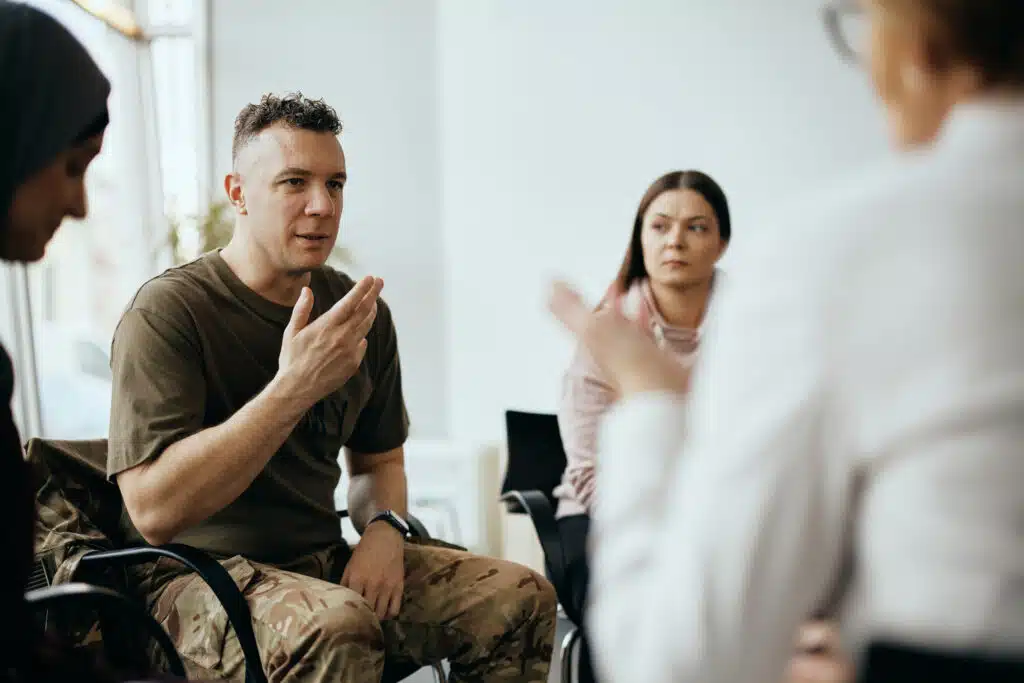Establishing peer support networks and veteran-specific support groups fosters a sense of connection and camaraderie among veterans in recovery.
In substance use disorder programs for veterans, peer support and mentorship provide:
Peer support groups bring together veterans who have faced similar challenges, including:
By connecting with others who have walked the same path, veterans can find validation, empathy, and a sense of belonging.
Sharing their experiences in a safe and supportive environment can help veterans:
Peer support and mentorship programs offer a network of encouragement and accountability.
Veterans in recovery can:
Having a strong support system can be especially crucial during the early stages of recovery when the risk of relapse is highest. Regularly attending peer support meetings and engaging with mentors can help veterans stay motivated, focused, and committed to their recovery goals.
Mentorship programs pair veterans in early recovery with those who have achieved long-term sobriety. These mentors serve as role models, demonstrating that sustained recovery is possible and providing guidance on how to navigate the challenges of maintaining sobriety.
By sharing their own experiences, coping strategies, and life skills, mentors can inspire hope and offer practical advice to veterans who are just beginning their recovery journey.
These relationships can be incredibly valuable, as they provide veterans with a roadmap for success and a living example of what life in recovery can look like.
As veterans progress in their recovery, peer support and mentorship programs offer opportunities for leadership and service. Many veterans find a sense of purpose and fulfillment in giving back to the community that has supported them.
By becoming peer leaders or mentors themselves, veterans can use their experiences to help others who are struggling with substance use disorders. This not only strengthens their own recovery but also allows them to make a positive impact on the lives of fellow veterans.
Engaging in leadership roles and service activities can help veterans:
Organizations like Alcoholics Anonymous (AA) and Narcotics Anonymous (NA) offer veteran-specific meetings and support groups, creating a safe space for veterans to share their struggles and successes.
These groups often follow a 12-Step model, which emphasizes:
By attending veteran-specific meetings, veterans can connect with others who understand the unique challenges of military service and can relate to their experiences on a deeper level.
At New Choices Treatment Center, we recognize the power of peer support and mentorship in the recovery process. Our program incorporates veteran-specific support groups and connects clients with mentors who have successfully navigated the challenges of recovery.
By fostering a strong sense of community and providing opportunities for leadership and service, we aim to empower veterans to build a solid foundation for long-term recovery and a fulfilling life beyond substance use.

